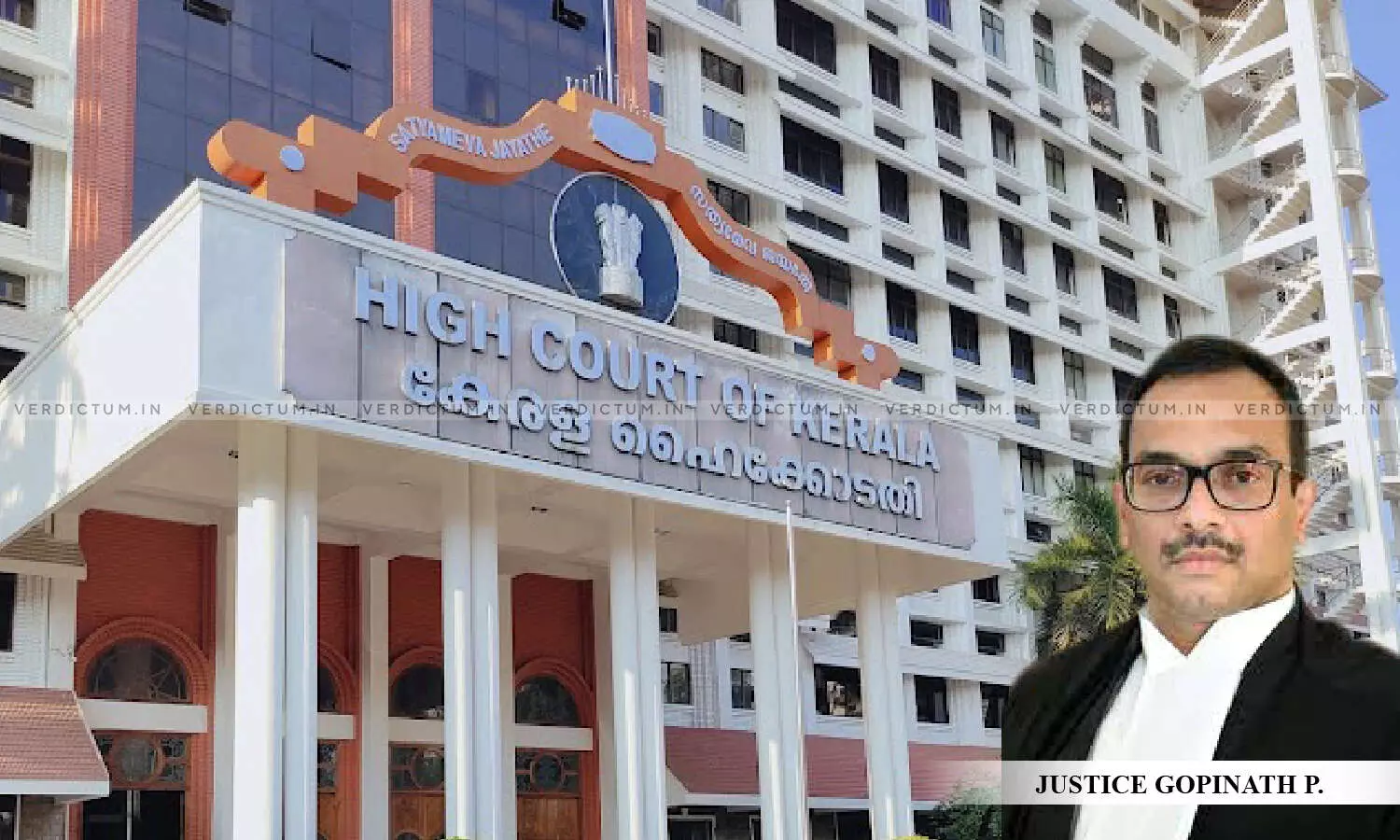
Where Personal Attendance Of Accused Is Dispensed With, Evidence Can Be Recorded In Presence Of His Pleader: Kerala HC
 |
|The Kerala High Court observed that under Section 273 of the Criminal Procedure Code (CrPC), where the personal attendance of the accused is dispensed with, evidence can be recorded in the presence of his pleader.
The Court observed thus in a case where a man was accused in respect of the offences under Sections 354A(1), 354B, 354(D)(1)(i), 511, and 376 of the Indian Penal Code (IPC) and Section 10 read with 9(f) (l) (p) and Section 12 read with 11 (iv) of the Protection of Children from Sexual Offences Act, 2012 (POCSO Act).
A Single Bench of Justice Gopinath P. held, “It is clear from a reading of Section 273 as extracted above that the normal rule is that evidence in a criminal trial shall be recorded in the presence of the accused. However, it is clear from a reading of the provision itself that where the personal attendance of the accused is dispensed with evidence can be recorded in the presence of his pleader. The contention of the learned counsel appearing for the petitioner that the words ‘when his personal attendance is dispensed with’ occurring in Section 273 Cr.P.C refers only to situations covered by Section 299 Cr.P.C or Section 317 Cr.P.C does not appeal to this court.”
The Bench added that there is nothing in Section 273 which would indicate that the words 'when his personal appearance is dispensed with' apply only to situations covered by Sections 279 or 317 in CrPC.
Advocate S.S. Aravind represented the petitioner while Senior Public Prosecutor Vipin Narayan represented the respondent.
In this case, following the framing of charges, summons was issued to the victim and the case was adjourned. On the next hearing date, the accused was present in court but the victim was absent. Hence, a bailable warrant was issued to the victim and the matter was again adjourned. On the concerned date, the accused appeared through counsel and sought to condone the absence of the accused on medical grounds and prayed to adjourn the case to any date after three weeks.
The Special Court proceeded to record the chief examination of the victim and the matter was adjourned to another date for the purpose of cross examination. The accused approached the High Court challenging the proceedings of the Fast Track Special Court in examining the victim in his absence. According to him, the victim could not have been examined in his absence going by the mandate of Section 273 of CrPC. Hence, he was before the High Court seeking direction to the Special Court to examine the victim in his presence.
The High Court after hearing the contentions of the counsel noted, “Having heard the learned counsel for the petitioner / accused and the learned Senior Public Prosecutor appearing for the State, I am of the view that there is absolutely no illegality in the procedure followed by the Fast Track Special Court, Thaliparamba in proceeding to allow the examination-in-chief of PW1 in the absence of the petitioner / accused and in the presence of his counsel. I believe that the answer to the question posed by the learned counsel for the petitioner lies in the provisions of Section 273 itself.”
The Court further said that the provisions of Section 273 indicate that even when the personal appearance of the accused is dispensed with for a day on the application of the accused and when witnesses are in attendance, it is open to the court to record the evidence of the witnesses in the absence of the accused and in the presence of his pleader.
“The impugned proceedings (Annexure-A5) of the Fast Track Special Court, Thaliparamba indicate that the accused was represented by counsel on 16-10- 2023. The application filed by the petitioner / accused as CMP No.466/2023 was allowed on payment of costs and the matter was adjourned for the cross-examination of PW1 to 08-11-2023. Going by the plain meaning of the words used in the latter part of Section 273 Cr.P.C no canon of interpretation calls upon this Court to read into it any further limitation leading to a conclusion that evidence in a criminal trial can be recorded in the absence of the accused only when the personal appearance of the accused is dispensed with in circumstances contemplated by Sections 299 and 317 Cr.P.C.”, it also noted.
The Court, therefore, held that while the normal rule is that the evidence in a criminal trial must be recorded in the presence of the accused, the evidence of witnesses can be recorded in the presence of the counsel for the accused even in situations where the court grants exemption from personal appearance to the accused even of a day.
Accordingly, the High Court dismissed the petition.
Cause Title- Manoj T.K. v. State of Kerala (Neutral Citation: 2024:KER:1583)